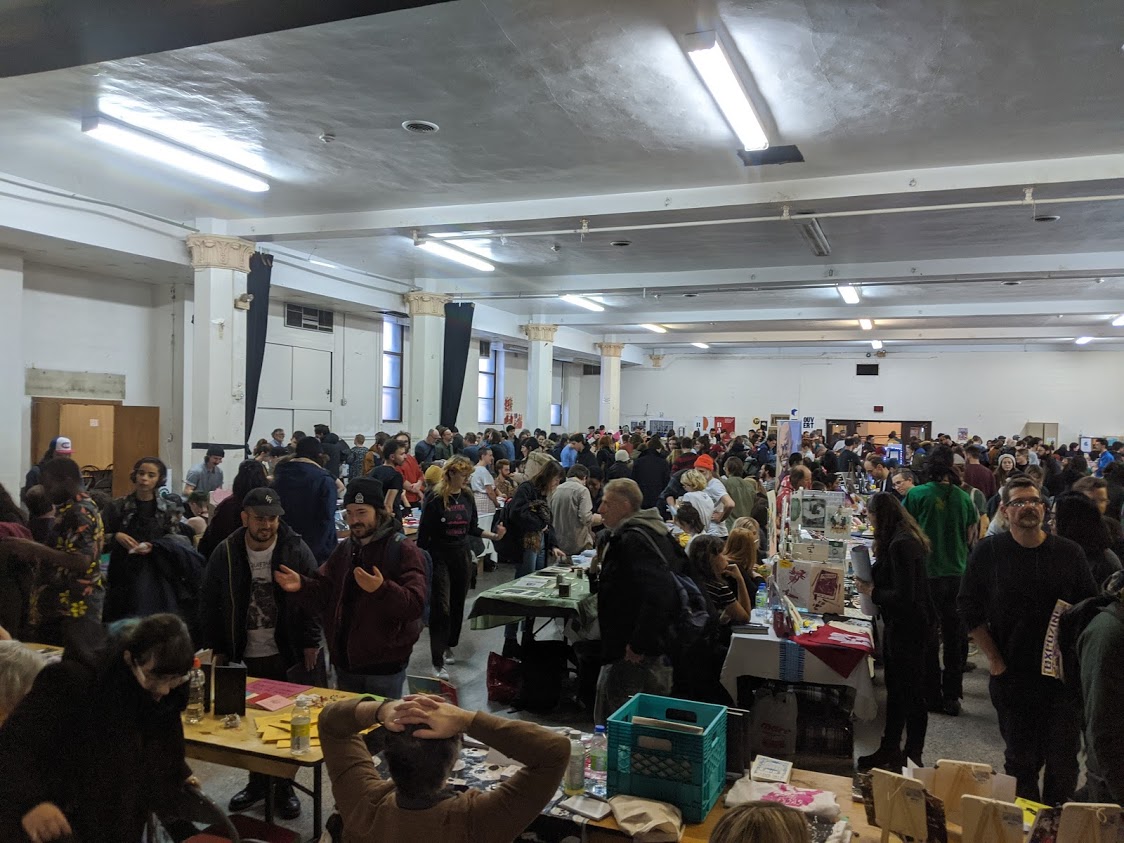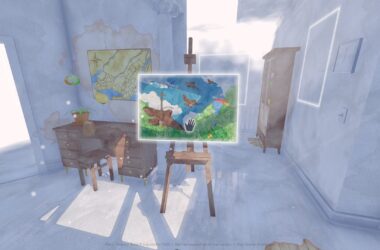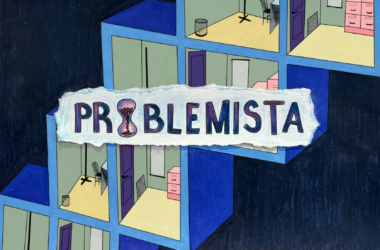Mainstream culture often seems omnipresent—but every mainstream contains lively subcultures, and in the case of publishing, that subculture is zines. Montreal’s Expozine, which took place Nov. 16-17, had over 270 vendors set up in Église Sainte-Arsène’s basement and drew over 15,000 visitors.
Typically, a zine is an independently published work meant to circumvent more traditional avenues for sharing art. Zines have often been associated with fringe issues, speaking for and about marginalized people and providing a platform for countercultural ideas and movements. Since zines have often had small circulations due to their DIY nature, their distribution has generally remained within the communities that produced them.
Expozine hosted its first convention in 2002, and has since grown to be Canada’s largest small-press convention and one of the most popular events of its kind in North America. With its continued success, Expozine has begun attracting artists internationally. Rows of vendors lined the hall with their visual art, poetry, essays, photography, comics, criticism, and political manifestos. Even within the world of zines, differences in artist resources and funding—some publications are run by a single person, while others boast dedicated editorial teams—make it difficult to reduce the disparity in popularity between larger and more obscure publications. Expozine, however, is an equalizer, where visitors can find kiosks of staple-bound poetry pamphlets next to mainstream publishers displaying their fully-coloured magazines.
Notable attendees included the Quebec literary publisher Véhicule Press, whose kiosk boasted novels and poetry collections from award winning writers. In another corner, Tania Mignacca, the creator of the webcomic Ponto, an endearing series about Montreal’s orange construction cones, displayed her newly published collection of the same name. A few tables down, Concordia’s student-run Queer Print Club exhibited their newest contributions discussing gender and sexuality. In contrast to mainstream conventions like the upcoming Salon du livre de Montréal, Expozine’s value comes from showcasing a variety of artists whose eclectic niches might otherwise be overlooked.
Over the years, Expozine has expanded to include several workshops and talks. One such round table, hosted by La Petite Librairie Drawn & Quarterly on Nov. 14, invited several artists to speak about the collaborative nature of making zines. Jimmy Beaulieu, a Montreal-based cartoonist and comic artist, spoke about the difficulties of distributing work in Canada. Beaulieu spoke of the benefits of working with conventions like Expozine, especially in the era before it was common practice to advertise artwork through social media. Without a major publisher to back his work and distribute it country-wide, concentrated gatherings such as Expozine helped him to reach audiences made inaccessible by Canada’s vast landscape.
Meanwhile, Iris Boudreau, whose illustrations of urban life mix autobiography and fiction, spoke about the benefits of collaborating with fellow artists, some of whom she had met at conventions like Expozine. Boudreau remarked that she has often used collaboration as a means to assuage feelings of self-doubt and to share her projects’ failures and successes with collaborators, many of whom she now considers friends. More than just building solidarity, though, Boudreau also felt that collaboration was a great source of motivation, a tool for completing work and launching new projects.
Embodying this communal spirit, the convention brought together a vibrant collective of artists, writers, and illustrators. As Expozine continues to grow, so will its ability to champion the distinct voices that make up the world of zines.









